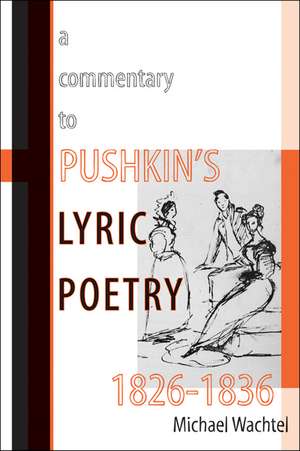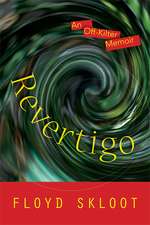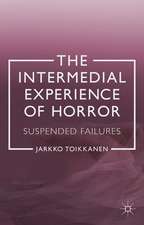A Commentary to Pushkin’s Lyric Poetry, 1826–1836: Publications of the Wisconsin Center for Pushkin Studies
Autor Michael Wachtelen Limba Engleză Paperback – 24 ian 2012
Alexander Pushkin’s lyric poetry—much of it known to Russians by heart—is the cornerstone of the Russian literary tradition, yet until now there has been no detailed commentary of it in any language.
Michael Wachtel’s book, designed for those who can read Russian comfortably but not natively, provides the historical, biographical, and cultural context needed to appreciate the work of Russia’s greatest poet. Each entry begins with a concise summary highlighting the key information about the poem’s origin, subtexts, and poetic form (meter, stanzaic structure, and rhyme scheme). In line-by-line fashion, Wachtel then elucidates aspects most likely to challenge non-native readers: archaic language, colloquialisms, and unusual diction or syntax. Where relevant, he addresses political, religious, and folkloric issues.
Pushkin’s verse has attracted generations of brilliant interpreters. The purpose of this commentary is not to offer a new interpretation, but to give sufficient linguistic and cultural contextualization to make informed interpretation possible.
Michael Wachtel’s book, designed for those who can read Russian comfortably but not natively, provides the historical, biographical, and cultural context needed to appreciate the work of Russia’s greatest poet. Each entry begins with a concise summary highlighting the key information about the poem’s origin, subtexts, and poetic form (meter, stanzaic structure, and rhyme scheme). In line-by-line fashion, Wachtel then elucidates aspects most likely to challenge non-native readers: archaic language, colloquialisms, and unusual diction or syntax. Where relevant, he addresses political, religious, and folkloric issues.
Pushkin’s verse has attracted generations of brilliant interpreters. The purpose of this commentary is not to offer a new interpretation, but to give sufficient linguistic and cultural contextualization to make informed interpretation possible.
Preț: 259.92 lei
Nou
Puncte Express: 390
Preț estimativ în valută:
49.74€ • 54.19$ • 41.91£
49.74€ • 54.19$ • 41.91£
Carte tipărită la comandă
Livrare economică 23 aprilie-07 mai
Preluare comenzi: 021 569.72.76
Specificații
ISBN-13: 9780299285449
ISBN-10: 0299285448
Pagini: 320
Dimensiuni: 152 x 229 x 28 mm
Greutate: 0.57 kg
Ediția:1
Editura: University of Wisconsin Press
Colecția University of Wisconsin Press
Seria Publications of the Wisconsin Center for Pushkin Studies
ISBN-10: 0299285448
Pagini: 320
Dimensiuni: 152 x 229 x 28 mm
Greutate: 0.57 kg
Ediția:1
Editura: University of Wisconsin Press
Colecția University of Wisconsin Press
Seria Publications of the Wisconsin Center for Pushkin Studies
Recenzii
“This concise commentary to Pushkin’s poetry—the first in the English language—is an indispensable tool for any student of Russian letters and a veritable trove for a comparativist.”—Sergei Davydov, Middlebury College
“A superb work that will make the life of everyone reading and studying Pushkin far easier. This commentary is a considerable scholarly achievement and public service.”—Irina Reyfman, Columbia University
Notă biografică
Michael Wachtel is professor of Slavic languages and literature at Princeton University. He is author of Russian Symbolism and Literary Tradition: Goethe, Novalis, and the Poetics of Vyacheslav Ivanov (University of Wisconsin Press); The Development of Russian Verse: Meter and Its Meaning; and The Cambridge Introduction to Russian Poetry.
Cuprins
Preface
Acknowledgments
Reader's Guide
1826
1827
1828
1829
1830
1831
1832
1833
1834
1835
1836
Works Consulted
Index
Acknowledgments
Reader's Guide
1826
1827
1828
1829
1830
1831
1832
1833
1834
1835
1836
Works Consulted
Index
Descriere
Alexander Pushkin’s lyric poetry—much of it known to Russians by heart—is the cornerstone of the Russian literary tradition, yet until now there has been no detailed commentary of it in any language.
Michael Wachtel’s book, designed for those who can read Russian comfortably but not natively, provides the historical, biographical, and cultural context needed to appreciate the work of Russia’s greatest poet. Each entry begins with a concise summary highlighting the key information about the poem’s origin, subtexts, and poetic form (meter, stanzaic structure, and rhyme scheme). In line-by-line fashion, Wachtel then elucidates aspects most likely to challenge non-native readers: archaic language, colloquialisms, and unusual diction or syntax. Where relevant, he addresses political, religious, and folkloric issues.
Pushkin’s verse has attracted generations of brilliant interpreters. The purpose of this commentary is not to offer a new interpretation, but to give sufficient linguistic and cultural contextualization to make informed interpretation possible.
Michael Wachtel’s book, designed for those who can read Russian comfortably but not natively, provides the historical, biographical, and cultural context needed to appreciate the work of Russia’s greatest poet. Each entry begins with a concise summary highlighting the key information about the poem’s origin, subtexts, and poetic form (meter, stanzaic structure, and rhyme scheme). In line-by-line fashion, Wachtel then elucidates aspects most likely to challenge non-native readers: archaic language, colloquialisms, and unusual diction or syntax. Where relevant, he addresses political, religious, and folkloric issues.
Pushkin’s verse has attracted generations of brilliant interpreters. The purpose of this commentary is not to offer a new interpretation, but to give sufficient linguistic and cultural contextualization to make informed interpretation possible.

























